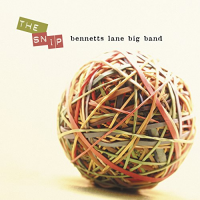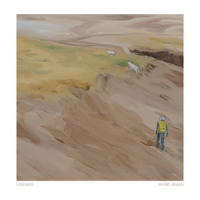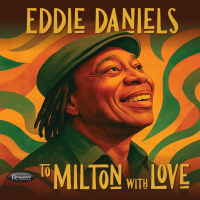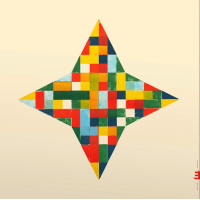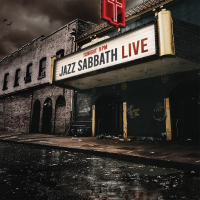Home » Jazz Articles » Album Review » New York Art Quartet: New York Art Quartet
New York Art Quartet: New York Art Quartet
One of the things that always set the group's ESP date apart from contemporary brethren is its inclusion of a poem, "Black Dada Nihilismus" by Amiri Baraka(LeRoi Jones), which is woven into the group's fabric. "Nihilismus" is a beat follow-up to Eliot's "The Wasteland" in the clothes of mid-60s New York, "cool" as dead, disheartened and disaffected with no place in any artistic or racial community, yet somehow affirming singularity as solitude. In a way, the inclusion of Baraka's (Jones) poem perfectly mirrors the in- betweenness of the group, who certainly had grand claims as to their music as art-music, creative and experimental, but whose approach to that very artfulness was always brusque and extremely "street."
The horns sit out for "Nihilismus," which is propelled by the thrum of Worrell's bass and Graves' telepathic burbling accents, a true collective music-poetry exploration that soon erupts into Rudd's "Sweet." Rudd and Tchicai are in loose unison on the easy-tempo theme, Graves in a continual hum of activity often at odds with the front line. Somewhat analogous to Anthony Williams, whose dissection of meter acted as the fulcrum for a number of groups at the time, Graves is defiantly in his own orbit. Rather than providing a canvas to free the soloist a la Sunny Murray, Graves is impulsive and either ignores or counteracts the soloist with non-isometric phrases, creating tension through non-unison collectivity. Yet there's propulsion and swing by dint of disparity, a pulse that's kinetic even if it's multidirectional. Tchicai's "No. 6" grooves mightily, even if Graves' dense patterns aren't countable by traditional means.
Graves' counter-melodic approach to rhythm isn't the only way in which the ensemble moves at odds. Rudd and Tchicai are a curious foil, a clash of slushy tailgate, buzzing and vocal, with cool-toned, acrid and poised alto. Tchicai, who studied with the late Steve Lacy, has more in common with the free-associative burble of Lee Konitz than Dolphy or Ornette. Cooking through contradiction, the New York Art Quartet cut some of the most powerful music in the free jazz underground.
Track Listing
Short; Black Dada Nihilismus; Sweet; Rosmosis; Untitled; No. 6
Personnel
New York Art Quartet
band / ensemble / orchestraRoswell Rudd: trombone; John Tchicai: alto saxophone; Milford Graves: drums; Lewis Worrell: bass; Amiri Baraka (LeRoi Jones): recitation
Album information
Title: New York Art Quartet | Year Released: 2008 | Record Label: ESP Disk
Tags
About New York Art Quartet
Instrument: Band / ensemble / orchestra
PREVIOUS / NEXT
Support All About Jazz
 All About Jazz has been a pillar of jazz since 1995, championing it as an art form and, more importantly, supporting the musicians who make it. Our enduring commitment has made "AAJ" one of the most culturally important websites of its kind, read by hundreds of thousands of fans, musicians and industry figures every month.
All About Jazz has been a pillar of jazz since 1995, championing it as an art form and, more importantly, supporting the musicians who make it. Our enduring commitment has made "AAJ" one of the most culturally important websites of its kind, read by hundreds of thousands of fans, musicians and industry figures every month.




